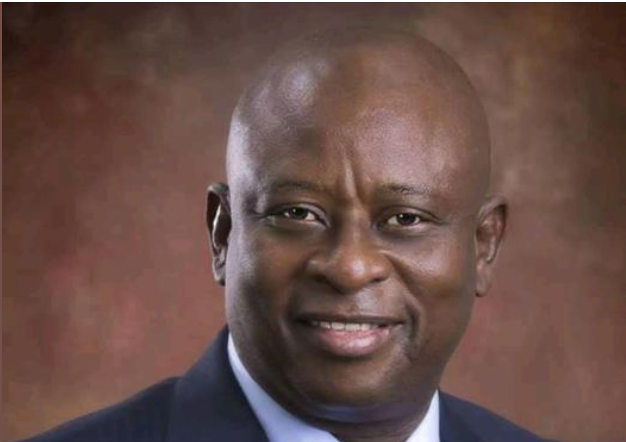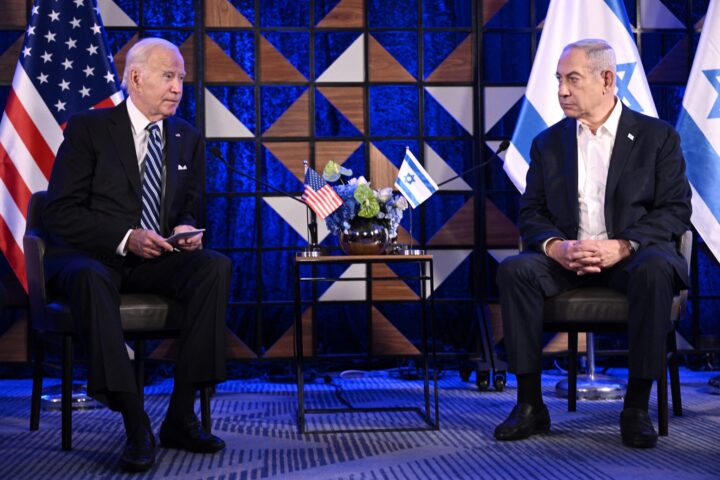There is a medication I buy for my 79-year-old mum every month. It was going for less than N10,000 per pack at this time last year. Today, it is N31,000. Although I consider it pretty expensive, I can still afford it. But each time I buy it, my heart goes to Nigerians living on the minimum wage and those surviving on pensions. How are they coping? My mum is fairly healthy for her age and uses only one prescribed medication. But what about the less privileged and less lucky Nigerians who have to treat hypertension, diabetes and organ-related ailments? How are they coping with the costs? Will they not become vulnerable to fake drugs and harmful options? Will some not simply ignore medications?
I was deep in this thought when Dr Henry Ewunonu, a physician and health advocate, asked me if TheCable — the online newspaper I founded in 2014 — would consider convening a public forum to discuss the escalating costs of medicines and medical consumables in Nigeria. He suggested that the diagnostic evaluation of the causes of escalating costs should lead to a prescription of actionable proposals by the forum. That was music to my ears. TheCable’s 10th anniversary was approaching and our mandate is “to deliver knowledge-driven journalism in the pursuit of Nigeria’s progress”. We just don’t want to be saying there is a problem — we also want to be part of providing solutions.
We immediately set sail. On first dial, Prince Julius Adelusi-Adeluyi, founder & chairman, Juli Pharmacy Plc and former minister of health, graciously agreed to chair the event. Prof Ali Pate, coordinating minister of health and social welfare, instantly accepted our invitation. Dr Stella Okoli, founder of Emzor Pharmaceutical, did not respond, but we still formed a solid panel: Prof Moji Adeyeye, NAFDAC DG; Dr Uche Ojinmah, president, Nigerian Medical Association (NMA); Mrs Chisom Uchem, ES, Anambra Primary Healthcare Development Agency (APHDA); and Mr Frank Muonemeh, ES of the Pharmaceutical Manufacturers Group of the Manufacturers Association of Nigeria (MAN).
I had plenty take-aways from the webinar, which was held on April 30. Prince Adelusi-Adeluyi set the ball rolling by pointing out how India moved from being an importer of medicines to becoming a global industrial giant in pharmaceuticals. “Industrialisation is the way,” he said, emphatically. This is more loaded than it appears. Nigeria imports about 70 percent of its drugs. Even the locally manufactured drugs rely 100 percent on imported active pharmaceutical ingredients (APIs). As Prof Adeyeye put it, the only thing our pharmaceutical companies don’t import is water. In one word, Nigeria relies entirely on imported medicines or APIs. We are at the mercy of the forex volality.
Advertisement
The dependency on imported drugs comes with several issues. The forex challenge is probably the most obvious and impactful, but there is also the cost of patent payments which contribute in no little way to the price at which patients buy drugs. Let us return to India briefly. In the 1970s, they started preparing to solve problems associated with drug importation. They came up with the revolutionary Indian Patents Act (1970) and Drug Policy (1978) which stimulated local production of generic drugs, compared to the costly Western patents. In the 1980s, India had graduated from the sick position Nigeria is today to that of a leading exporter of drugs. Vision. Tenacity of purpose.
Preparations also met opportunity. In 1984, the US enacted the Hatch-Waxman Act to facilitate the production of generic medicines. Indian companies became perhaps the biggest beneficiaries. As Prince Adelusi-Adeluyi highlighted, they are now the leading exporters of generic medicines. They supply 20 percent of global demand. More than half of the world’s vaccines are produced in India. Drugs produced in India account for about 40 percent of generics used in the US and 25 percent of medicines sold in the UK. There are over 3,000 Indian pharmaceutical companies and they earned about $25 billion from exports in 2023 alone. Industrialisation. Why can’t we seize this opportunity?
Mr Muonemeh, the voice of Nigerian drug manufacturers at the webinar, listed the obstacles they face — from various regulators to revenue-collecting agencies. Things are not always as simple as you would think they should be. You would think that government would take as priority anything that has to do with health — especially given the critical role medications play in wellbeing. Nigeria is complicated. Muonemeh pointed the myriad of obstacles faced by local producers and proposed that local production of medicines be treated as a national security issue. I agree with him. The COVID-19 experience opened the eyes of many countries to this vulnerability, but did it really open ours?
Advertisement
Prof Adeyeye listed a number of policy measures being adopted by NAFDAC to ease the crisis, including fast-tracking the licensing process for imported drugs in order to address shortages. She also spoke about the Five + Five (5+5) Policy which is designed to migrate imported products to local production. This policy stipulates a timeline during which an importer/manufacturer must show plans to produce locally or partner with local producers. “If we do not focus on local manufacturing, we will continue to have drug insecurity,” she said, adding that there is nothing the multinationals produce that we cannot make in Nigeria — apart from the inhalers used to manage asthma.
Local manufacturing is a long-lasting solution that should kick in at some point in the future if the right policies are adopted and implemented. Dr Ojinmah, however, wants the adoption of both short-term and long-term strategies and measures. I find his suggestion that tariffs on imported drugs be reduced very fascinating. I thought that this should be the first policy reaction of the government when prices started going through the roof. We grant waivers on many imports but medicines that save lives are not considered worthy. There is a place for revenue for government, I won’t argue against that, but have we considered the dangers of Nigerians being unable to buy life-saving drugs?
The NMA president made a number of proposals. He wants things kick-started with the declaration of a state of emergency on the health sector, which I believe is a way of saying government should pay extraordinary attention to the challenges. He wonders why there are government banks for many sectors without any for health, specifically to help the pharmaceutical industry. “Nigeria should inaugurate a health sector development bank that will have different facilities for all the health care contributors and stakeholders, such that they can go to this bank and fulfil conditions which should not be as stringent as the fund at the Central Bank of Nigeria (CBN),” the dermatologist said.
“This will encourage pharmaceutical companies to go into production of drugs like antibiotics, anti-hypertensives and anti-diabetes. Government should reduce import levy on importation, equipment and production of these drugs to enable people bring in drugs into the country. We would be the greatest beneficiary as economic productivity will rise. Government should also bridge the gap between the rich and the poor in terms of access to medicines,” Ojinmah further suggested, while also emphasising the need for government to improve the health insurance scheme so that millions of ordinary Nigerians can have access to treatment without having to pay out of pocket.
Advertisement
An interesting proposal was put on the table by Mrs Chisom Uchem, the executive secretary of the Anambra Primary Health Development Agency (ASPHDA): encourage research into local herbs. The pharmacist oversees an agency that attends to medical needs at the grassroots and testifies that many people suffering from common ailments often come back to say they have used herbs and are back on their feet. Uchem wants the federal government to mandate the Nigerian Institute of Medical Research (NIMR) to play a lead role in that endeavour. China has done well in promoting use of herbs, even exporting them. Our own NIMR is one of the most poorly funded federal agencies.
“I’m looking at policies of government that will promote research enterprise,” Uchem said. “I’m thinking that if government will encourage clinical research, essential drugs will be affordable to the grassroots because this is the basic level of care. We can have our local brands, our local products. It will cut down on the prices of essential medicines. So, I’m thinking that amongst other things that we’ll do to cut the high cost of medication in Nigeria is that emphasis and premium should be paid on government supporting and promoting research enterprise… All of these lemon grasses, all of the guava leaves, all of the quinine, you know, this quinine, most of them are anti-malaria.” Fascinating.
I have always respected Prof Pate and I found his contributions reassuring. He said President Bola Tinubu was working on a comprehensive plan to address the issues affecting local manufacturing. He acknowledged the challenges: naira devaluation, power supply, technical know-how, supply chain and regulatory landscape. He said the government has been having a series of engagements with industry players, practitioners, and stakeholders on the escalating costs and hinted that an executive order was in the offing. While I was happy, a part of me was quietly praying fervently that MDAs will not frustrate the plan. As we know, they are always working at cross purposes. It is a Nigerian thing.
There were so many take-aways to curate and synthesize. TheCable plans to produce a comprehensive report and send to the appropriate authorities in the lawmaking, policy and regulatory chain as its modest contribution to the discourse on improving the state of the nation’s health care. One theme that rings through contributions is “medicine security”. We need to ramp up local manufacturing with tenacity. Who knows, we may even become net exporters. Didn’t India do it? It took vision and tenacity of purpose. In Nigeria, we are not short of good ideas. What we need is honest commitment to them. Implementation is where the devil always shows up in the details.
Advertisement
AND FOUR OTHER THINGS…
WAGE WAR
On Tuesday, federal government announced a pay rise of between 25 and 35 percent for its civil servants across salary structures. This has been rejected by the labour unions. The Nigeria Labour Congress (NLC) is insisting on a minimum of N615,000/month — more than 20 times higher the current N30,000. I think we can have a scientific solution to this perennial controversy over the minimum wage. There should be a mechanism agreed by all parties involved. Can we have certain benchmarks to create this mechanism? The simplest one that comes to my head straightaway is a proportional relationship between the wage and inflation rate. That can minimise the rift. Hopefully.
Advertisement
EFCC’S BELLOW
Nigerians have been treated to a spectacular face-off between the EFCC and Mr Yahaya Bello, former Kogi governor — quite similar to what they saw between the commission and Mr Ayo Fayose, former Ekiti governor, as well as Owelle Rochas Okorocha, former Imo governor, in recent years. Bello, who has mindboggling allegations lined up against him, needs to be a man and turn himself in. He can run but he can’t hide. It is a matter of time before he is captured. But am I the only one thinking the EFCC chairman, Mr Ola Olukoyede, went overboard with his press conference and threats? He needs to be calming down. I think this media drama is too much and not good for the commission. Caution.
Advertisement
BY CHOICE
The publicity-crazy Federal Competition and Consumer Protection Commission (FCCPC) has threatened to review the subscription rates announced by Multichoice for its DStv and GOtv packages. The FCCPC did not review the FX rate when it fell from N460/$ to N1400/$. Those guys don’t know that rights for foreign contents, such as the English Premier League, are paid for in FX. The FCCPC did not review Band A tariff when it was tripled despite power poor supply. They didn’t review the prices of life-saving drugs. But we hear “monopoly” when it comes to Multichoice. Is Pay TV a fundamental human right? Or are we just obsessed with South African businesses? Bullies.
Advertisement
NO COMMENT
You must have heard about the “housing estate” under the Dolphin estate bridge, Lagos. Each room was either 10×10 or 10×12 and the tenants were paying N250,000 per annum, according to Mr Tokunbo Wahab, commissioner for environment and water resources. There were no amenities such as power and water. Lagos state officials have made a public show of how they cracked down on the squatters and arrested some of them. Somehow, they do not know that the joke is on them. There is a serious housing crisis in Lagos state and what officials should be showcasing is what they are doing to address the issue, but they were busy shaming hapless squatters who were being exploited. Sad.







